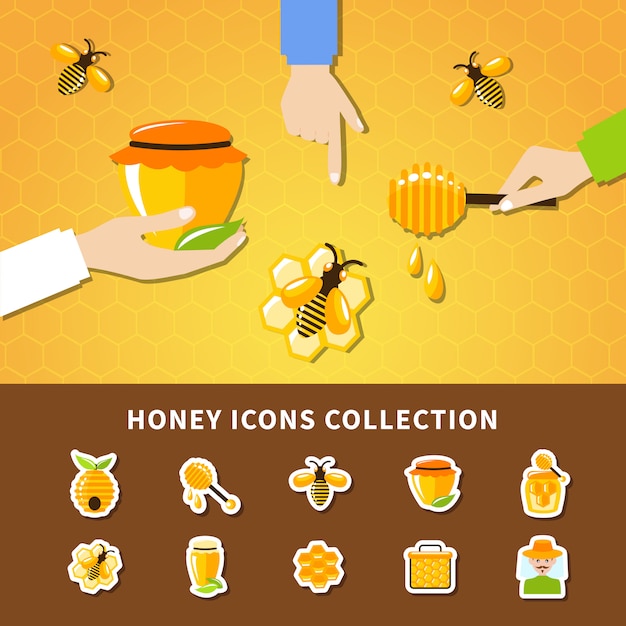Amazing Facts about Honey Bees

Honey bees can fly at a speedy rate of up to 15 miles per hour.
Did you know that a single honey bee can visit up to 5,000 flowers in a day?
Honey bees are the only insects that produce food consumed by humans.
The average honey bee colony can consist of up to 50,000 bees.
Honey bees communicate through a complex dance known as the waggle dance.
Bees have five eyes, with two large compound eyes and three smaller eyes on top of their heads.
A honey bee can carry a load of nectar that is equivalent to its own body weight.
Honey never spoils! Archaeologists have discovered edible honey in ancient Egyptian tombs.
Honey bees are excellent mathematicians; they can recognize and calculate angles.
Beeswax, produced by honey bees, is used in many products like cosmetics and candles.
Honey bees play a crucial role in pollinating around one-third of the world’s crops.
The honey bee’s wings beat at a remarkable 200 beats per second.
Honey bees have a special honey stomach where they store nectar before returning to the hive.
The queen bee can lay up to 2,000 eggs in a single day.
Honey bees have been producing honey for millions of years, even before humans existed.
A hive of honey bees can produce around 100 pounds of honey per year.
Honey bees are important indicators of environmental health due to their sensitivity to pollutants.
Bees have a special substance called propolis, which they use to seal their hive and protect it from intruders.
Amazing Facts about Honey Bees part 2
Honey bees have been used for medicinal purposes throughout history, known for their antibacterial properties.
Honey bees have been depicted in ancient cave paintings, showing their long-standing relationship with humans.
Bees have a complex social structure, with different roles assigned to worker bees, drones, and the queen.
Honey bees are not native to America; they were brought over by European settlers.
The lifespan of a worker honey bee is typically between 6 to 8 weeks.
Bees have a favorite color, and it’s blue! They are attracted to blue flowers more than any other color.
Bees have the ability to recognize human faces and will remember them if they perceive a threat.
Honey bees have a different type of dance to communicate the location of a new food source.
Honey bees are excellent architects, building unique hexagonal cells in their hives.
Bees have a special dance called the piping dance, which is used in swarming to signal the start of a new colony.
A single teaspoon of honey represents the lifetime work of 12 bees.
Honey bees can perceive ultraviolet light, allowing them to see patterns on flowers that are invisible to humans.
Queen bees can choose the sex of their offspring by controlling sperm usage during fertilization.
Honey bees have been given the title of super pollinators due to their effectiveness in transferring pollen between flowers.
Honey bees vibrate their wings to create heat and regulate the temperature in their hive.
Bees have a magnetic compass inside their bodies, helping them navigate and find their way back to the hive.
Honey bees are responsible for creating the unique flavors found in different types of honey, based on the flowers they visit.
Bees have a remarkable navigation system called path integration, allowing them to remember distances and angles during their flights.
The buzzing sound made by honey bees is the sound of their wings vibrating at high speeds.
Honey bees play a vital role in maintaining biodiversity by pollinating wildflowers and plants.
Bees are able to recognize specific colors, such as blue or yellow, even when they are not in their natural environments.
Honey bees have a specialized structure called the proboscis that allows them to suck up nectar from flowers.
Bees have a special dance called the dorsoventral abdominal vibration which is used to signal danger to other bees.
Honey bees have taste buds on their feet, allowing them to taste the surfaces they walk on.
Bees can be trained to detect certain substances, such as explosives or drugs, due to their keen sense of smell.
Honey bees have been observed communicating with each other through scent-based pheromones.
Bees are not always black and yellow; they can also be orange, green, or even black and blue.

